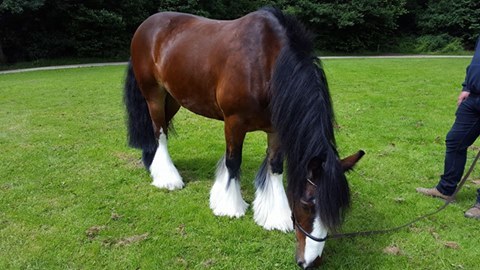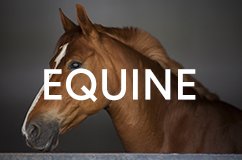

Top Tips For Feeding Your Horse
Top Tips for Feeding Your Horse
Horses need food to maintain their condition, to provide materials for growth, repair damaged tissues and provide energy for exercise. A horse has evolved to graze up to 18 hours out of 24 hours so it is important they have constant access to forage. Our Top Feed Tips are as follows:
- Forage first! This makes up the highest percentage of their daily intake so should be chosen carefully in line with the horse's calorific needs. The correct forage can minimise or eliminate the need for additional bucket feed, saving money and keeping the horse healthier.
- Keep any cereal feeds small, ensuring that the starch content is not too high. The current guidelines are to feed no more than 1g of starch per 1kg bodyweight (so 500g per feed for a 500kg horse). If they have more than this it risks spilling over into the hind gut undigested which could cause hind gut acidosis, colic or laminitis.
- Feed plenty of bulk and roughage such as grass, hay, haylage, etc: This ensures that the digestive system is always adequately filled, as would be the case in the wild.
- Feed according to size of horse and workload: More work requires more energy, and more food. Too much or too little food will result in the animal being over or under weight.
- Keep a check on your horse’s condition. You can do this by using a weigh tape, fat scoring or using a weigh bridge.
- Do not make sudden changes to the diet as the bacteria in the large intestine break down the feed and they have to adapt to any changes in the diet. Many metabolic disorders can be caused by sudden changes in feed causing bacteria to die and produce poisons.
- Horses are creatures of habit and thrive on a regular routine. Try to feed your horse at the same time everyday if possible.
- Ensure that buckets, scoops and other utensils are clean. Horses are fastidious feeders and can be easily deterred from eating.
- For variety add carrots or apples. This helps maintain the horse's interest and adds extra moisture to the feed.
- Do not ride immediately after feeding cereals as it could interfere with digestion and may cause colic.
- A forage feed prior to riding is beneficial to create a mat on top of the acids, minimising splashing on the sensitive non glandular area of the stomach so reducing risk of ulcers.
- Provide a constant supply of fresh, clean water.
- Test your grass and feed for vitamin and mineral content and make sure you supplement your horses accordingly, or feed a broad spectrum multi vitamin. Deficiencies can be the cause of many conditions in horses.
- Check the quality of your horses' feed and ensure it is not full of hidden sugars as this can be the cause of many metabolic conditions. Also, some feed substances can make horses fizzy so check all ingredients carefully. If in doubt get expert advice.













